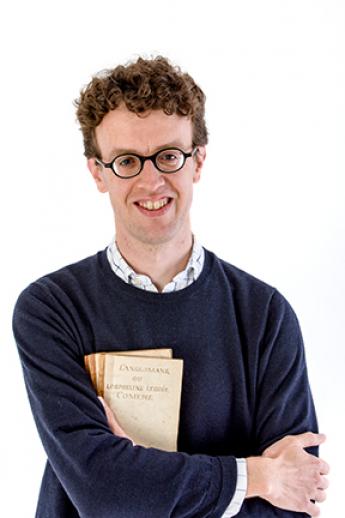Actualités Antiquarian Booksellers' Association Simon Beattie Ltd
ILAB Bookseller Simon Beattie on diversity in the rare book trade

1 How did you get your start?
I studied German and Russian at university, after which I stayed on for another year to study for an MA in lexicography. When I began looking for jobs there was a tiny advertisement in The Times for a job with Bernard Quaritch. After many happy years there, I set up on my own at the end of 2009.
2 What is one great discovery you’ve made?
Years ago I happened upon a mostly forgotten German author called Friedo Lampe (1899-1945), a disabled gay writer whose first book was banned by the Nazis in 1933. He led a difficult life, only to be shot by the Soviets days before the end of the Second World War. Both his style, which was greatly influenced by the cinema, and his story fascinated me, and I set about translating the banned novel, At the Edge of the Night. It was published last year by Hesperus Press.
3 What change would like to see in the market?
I’m not the first person to say this, but greater diversity in the book trade, and in the people we attract to our fairs. To make the rare book world more accessible, and for it to be somewhere more people want to spend their time, it’s important we reflect different ages, genders and ethnicities — and that they feel welcome. Attempts are being made to address this, but progress is slow.
4 One object you couldn’t do without?
Predictably, it’s a book. Every year, for possibly almost 30 years now, I have bought a pocket diary, with a pencil tucked down the spine. The idea is nothing new: there were almanacs for sale annually in the 18th century equipped with a metal stylus for the owner to write on the erasable paper which was specially bound in.
5 Real ale or espresso martini?
I’d rather a pint of stout, but my favourite drink is probably a cup of tea. As I get older, I find I drink alcohol less and less.
